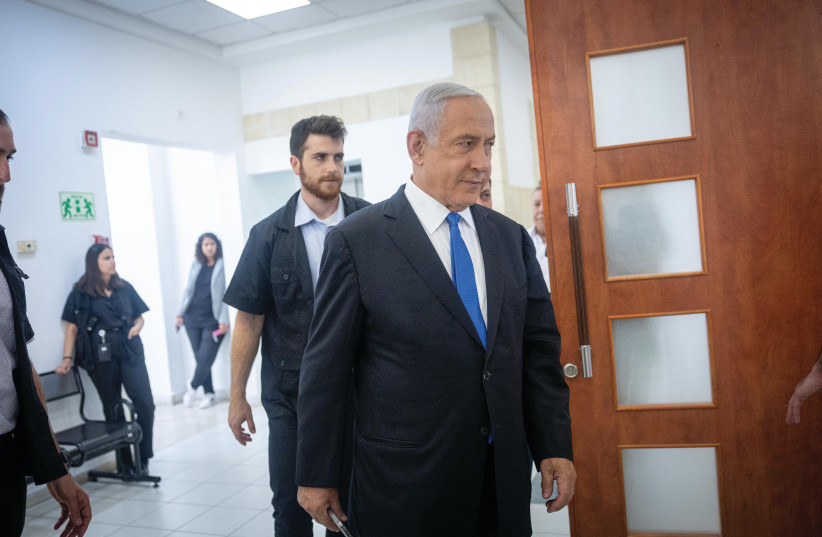Arnon Milchan was involved in talks about an arrangement for positive coverage with Yediot Ahronot newspaper at the behest of Prime Minister Benjamin Netanyahu, the businessman said in his third day of remote testimony from a UK courthouse on the Israeli leader's corruption trial.
Milchan recalled that there had been an intense rivalry between Yediot and Yisrael Hayom in 2009, and they knew that the prime minister's family was vulnerable to criticism. Milchan jokingly compared the news outlets' relationship to that of Netanyahu lawyer Amit Haddad and the prosecution. Milchan said that Yediot Ahronot publisher Arnon Mozes felt that Yisrael Hayom owner Sheldon Adelson was invading the country, flooding it with competing newspapers.
The prosecution said that Netanyahu sought to broker peace between the two about circulation and sales, but also wanted to avoid negative coverage from Mozes by convincing Adelson not to move forward with publishing a weekend edition.
"I was involved because I was close to the prime minister," Milchan testified, adding that he didn't want Netanyahu to be upset and preoccupied with attacks on his family, and to be able to focus on his job as prime minister.
Milchan had met with Netanyahu aide Nir Hefetz, who had previously worked at Yediot, to broker a deal between the two publishers, but the effort failed.

With a deal unable to be reached, the sale of Yediot was floated, but Mozes rejected the idea of several buyers. Adelson himself was an option but didn't want to buy the paper. Milchan said that he was in the middle of the talks, with Mozes and Adelson both speaking to him about deliberations.
Milchan had also introduced Mozes to Australian businessman James Packer, who "really liked each other." Netanyahu had also asked Milchan to look into laying the groundwork for news mogul Rupert Murdoch, who the prime minister felt had business and political interests aligned with the Netanyahu administration.
Case 2000: The Netanyahu trial
Under Case 2000, Netanyahu is accused of having engaged in fraud and breach of trust for meeting with Mozes about advancing legislation to cripple his news competitor in exchange for positive coverage. Milchan said that he didn't know of any direct conversations between Netanyahu and Mozes.
The witness gave his testimony through zoom, from a Brighton courthouse. A poor Internet connection cut and froze the feed multiple times, delaying proceedings. Milchan had said that he was too ill to travel. When asked by the judges how he was feeling, he said that he was feeling relatively relaxed, but physically less than good -- and looking forward to finishing his testimony.
